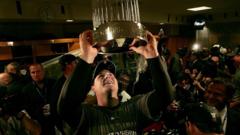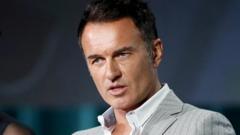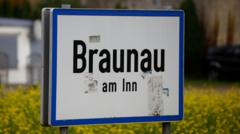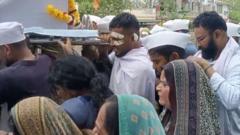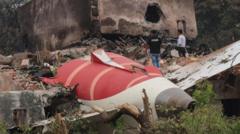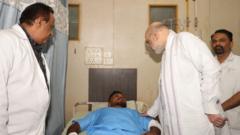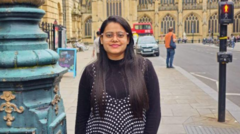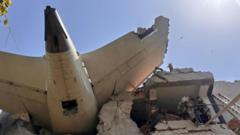In this deeply personal narrative, Taffy Brodesser-Akner recounts her emotional journey upon learning of the impending death of Jehuda Lindenblatt. As she reminisces about their shared history, she grapples with the weight of Holocaust remembrance that permeates her Brooklyn upbringing. The article serves as a meditation on loss, legacy, and the intricacies of education surrounding the Holocaust, revealing how these experiences shape identity and relationships.
### Reflecting on Loss: The Untold Story of Jehuda Lindenblatt

### Reflecting on Loss: The Untold Story of Jehuda Lindenblatt
In a poignant exploration of memory and grief, writer Taffy Brodesser-Akner contemplates the life of her friend's father, a Holocaust survivor, as he faces his final days.
I was in London this past November when I received the heartbreaking news that Mr. Jehuda Lindenblatt, my close friend's father, was gravely ill. I had awoken from a dream about my friend Ilana's engagement, a premonition that put me on edge, leading me to call her. Instead of joyous news, however, I learned that her father was dying of cancer, receiving palliative care, and not expected to live much longer. With inevitabilities looming on both our sides, I found myself reflecting on his life and legacy.
Mr. Lindenblatt, or Yehuda as he is known, was not just a father figure but a vibrant person full of quirks—an early adopter of running and alternative diets. I recall how he embraced the role of caregiver, ferrying Ilana and me to school events even when we were less than victorious in sports and arts alike. A man of notable vivacity, he taught me Hungarian greetings, skills that have surfaced unexpectedly in my life, and volunteered with the Jewish ambulance service in Manhattan Beach while managing his family's camera shop.
For many in my Brooklyn neighborhood, stories like Mr. Lindenblatt's were commonplace. In our education, the Holocaust loomed large; nearly every family had been touched by its horrors. At yeshiva high school, we delved deeply into Holocaust history, recounting familiar tales of survival and loss. Yet, I often jested that this focus came at the expense of a broader curriculum. Even so, the impact of our education on Holocaust remembrance ingrained a sense of identity that still resonates with me.
As I ponder the intersection of loss and remembrance, I am struck by how both the lessons of history and the stories of real people like Mr. Lindenblatt shape our understanding of who we are. I recognize that as I navigate this loss, I carry forward his story—one that mirrors the collective memory of so many survivors. Each recollection adds a thread to the fabric of our shared history, urging us to reflect, remember, and honor those who have come before us even in times of grief and change.

